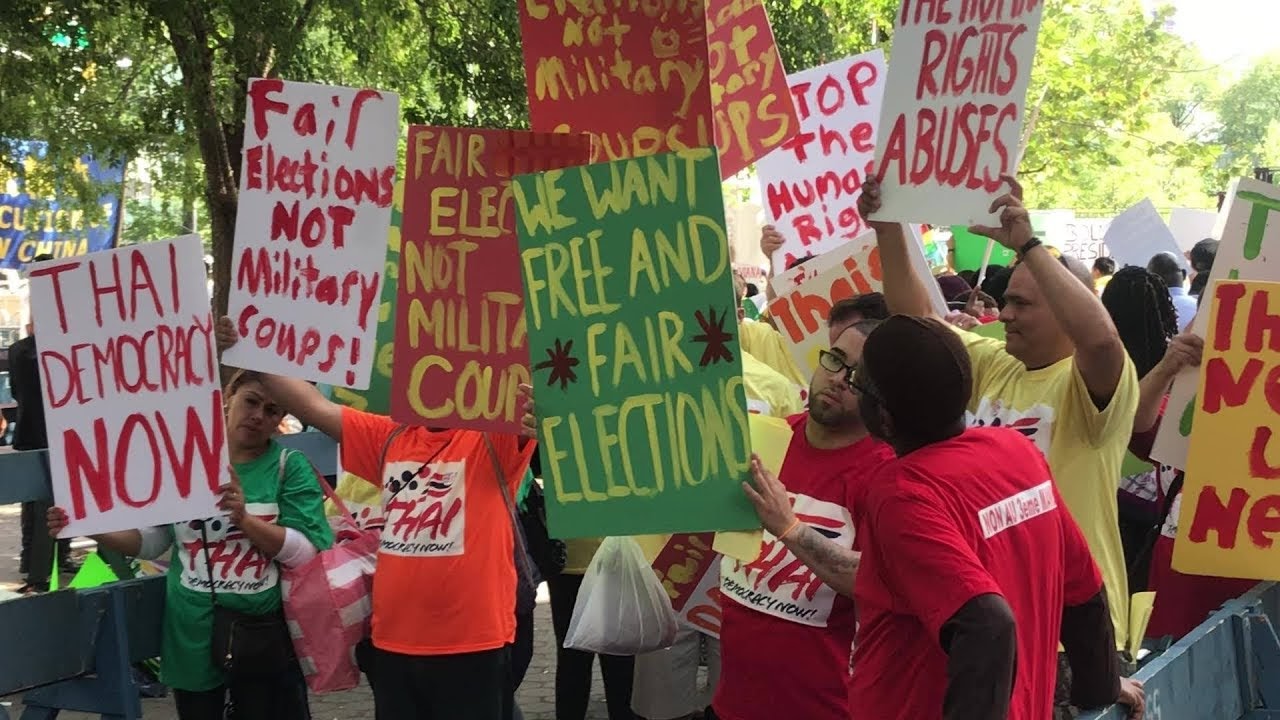In recent years, North Korea’s foreign policy has appeared to be volatile and erratic. Most international media coverage of East Asia in the past few months has featured election results and the region’s recovery from the global recession. North Korea, with its closed communist economy and dictator Chairman Kim Jong Il, has not been heavily affected by either of these things, and has continued to conduct its foreign relations with an aggressive and seemingly unpredictable policy.
For instance, in September 2009, North Korea spontaneously opened the Hwanggang Dam, causing the flooding of the Imjin River resulting in the death of six South Koreans. In addition, North Korea not only test-fired two short-range missiles at the beginning of December 2009, but Pyongyang officials also condemned South Korean President Lee Myung-bak’s “Grand Bargain” nuclear negotiation plan — a single-shot, total exchange of incentives with North Korea in exchange for the North’s complete termination of its nuclear program. In July North Korean representatives at the Association of Southeast Asian Nations (ASEAN) Ministerial Meeting in Phuket, Thailand even went so far as to state that United States’ Secretary of State Hillary Clinton is “by no means intelligent,” and sometimes “looks like a primary schoolgirl.”
What is curious is that the North’s followed up its mischievous behavior with more diplomatic gestures. When the South Korean government requested a meeting with North Korean officials regarding the dam incident, North Korea promptly accepted the South Korean request. South Korea’s government also suggested the possibility of the ninth transnational reunion of North and South Korean families separated during the Korean War, to which the communists quickly acceded. Despite their opinion of Secretary Clinton as a “schoolgirl,” North Korean officials explicitly stated that they wished for a bilateral talk with the United States. North Korean officials announced that they were willing to rejoin the Six-Party Talks halted since April 2009. These talks, which included Russia, the United States, South Korea, Japan and China, were focused on the North’s nuclear program.
The contrasts between the North’s words and actions make its foreign policy difficult to gauge. Although North Korea’s foreign policy could be regarded as a classic ‘good-cop, bad-cop’ approach, there are two important questions that remain to be unsolved: What kind of message is North Korea trying to deliver? And to whom is North Korea trying to deliver this message?

There have been numerous suggestions in the western media that North Korea’s aggressive behavior stems from its desire to threaten or intimidate President Barack Obama’s administration. Some believe North Korea wants the United States to lessen its sanctions based on President Obama’s statement that he was willing to negotiate with traditional adversaries of the United States. North Korea’s “good-cop, bad-cop” approach is unlikely to influence United States’ foreign policy on North Korea’s nuclear proliferation: the Obama administration’s fundamental stance toward North Korea remains the same as that of former President George W. Bush’s administration. Both administrations put emphasis on the protection of United States’ allies in East Asia and the denuclearization of North Korea. The United States’ policy on nuclear disarmament was further clarified when U.S. Secretary of Defense Robert Gates announced that the United States would never accept a nuclear North Korea and agreed to expand the United States’ nuclear deterrence policy in South Korea during his visit to Seoul in October, 2009.
North Korea is unlikely to provoke either China or Japan since it relies on both countries for important support. Japan’s Yukio Hatoyama administration’s North Korea policy has not changed relative to that of the previous Aso Taro administration. Japan is currently prioritizing bureaucratic changes and domestic political challenges rather than foreign policy.
If Japan, China and the United States are not the target of the North’s hot-cold policy, South Korea remains the only probable object of North Korea’s recent activities. If one examines North Korea’s recent actions, it is not difficult to see that most of the country’s behavior has occurred in hopes of catching the South Korean government’s attention.
Despite its continuous threat of nuclear proliferation and short-range missile tests, North Korea has always expressed its desire to communicate with the South Korean government. Even when North Korea test-fired its short-range missiles, the eighth transnational reunion of separated families still occurred. Also, the talk of a possible ninth transnational reunion was not hindered by any of North Korea’s bombast. When North Korea denounced South Korean President Lee-Myung Bak’s grand bargain approach, the country still managed to respond very promptly to the South Korean government’s request of a ministerial meeting to discuss the dam incident.
There has been a specific pattern to North Korea’s recent actions – North Korea has separated humanitarian issues, such as the family reunion, from political issues, such as nuclear proliferation. By doing so, North Korea could still firmly state their position on its nuclear program to the international community, and at the same time make a series of successful attempts to re-establish solid communications with South Korea.
What might be some of the reasons for North Korea’s attempt to reestablish communication with the South? North Korea explicitly affirmed that it was willing to rejoin the Six Party Talks with China, Japan, Russia, South Korea, and the United States. The North’s attempt to re-establish communication with the South can be seen as a means of engaging various members of the Six Party Talks ahead of their resumption, with an eye toward bolstering their position once they reconvene. It is easier for North Korea to influence the other Six-Party capitals through South Korea. By delivering their message through South Korea, which has more support from the other Six-Party powers, North Korea’s message could be considered more legitimate in the international community, whether it is a request for humanitarian aid or a demand to soften economic sanctions.
Despite this, North Korea’s long time patrons, Russia and China, expressed their concerns over North Korea’s nuclear ambitions when they supported United Nations Resolution 1874 in 2009, placing harsh economic and political sanctions on North Korea. After being an international pariah for many years, North Korea needs a third party moderator to invite it back to the international fold to re-establish its prestige and credibility. It seems North Korea is looking to South Korea to be the negotiator.
Recent North Korean policy suggests weakness, a sense that the North feels that it needs the South to successfully reintegrate into the international community. This presents both the South Korean and American governments with an opportunity to pressure the North Koreans into giving up their nuclear program. It is important for the South Korean government to not repeat past mistakes, such as the exchange of financial and political support for negotiations without promises of real results. The South appears more powerful in light of the North’s attempt to gain its attention. Although there are points of disagreement between regional powers, policy changes as states see fit. The Chinese and the Russians may be willing to take different positions according to the North’s behavior. With a proper mixture of diplomatic cooperation from Russia and China, as well as political pressure from South Korea and the United States, progress may soon be possible in Northeast Asia.
________________________
“제8차 이산가족 상봉 시작.” Naver. Web. http://news.naver.com/main/read.nhn?mode=LPOD&mid=tvh&oid=052&aid=0000012239.
Kessler, Glenn. “N. Korea Escalates War of Words, Calls Clinton Vulgar, Unintelligent.” The Washington Post: National, World & D.C. Area News and Headlines – The Washington Post. 23 July 2009. Web. http://www.washingtonpost.com/wp-dyn/content/article/2009/07/23/AR2009072300299.html.
“N. Korea Condemns U.N. Non-proliferation Resolution.” YONHAP NEWS. 30 Sept. 2009. Web. http://english.yonhapnews.co.kr/northkorea/2009/09/30/61/0401000000AEN20090930009700315F.HTML.
“No Operation.” Press TV. 20 Aug. 2009. Web. http://www.presstv.ir/detail.aspx?id=103995.
Sang-Hun, Choe. “North Korea Opens Dam Flow, Sweeping Away 6 in the South.” The New York Times. 6 Sept. 2009. Web. http://www.nytimes.com/2009/09/07/world/asia/07korea.html.
“SBS::미국, “북한 미사일 발사 움직임 면밀히 관찰중”” Www.sbs.co.kr. Web. http://news.sbs.co.kr/section_news/news_read.jsp?news_id=N1000552841.



